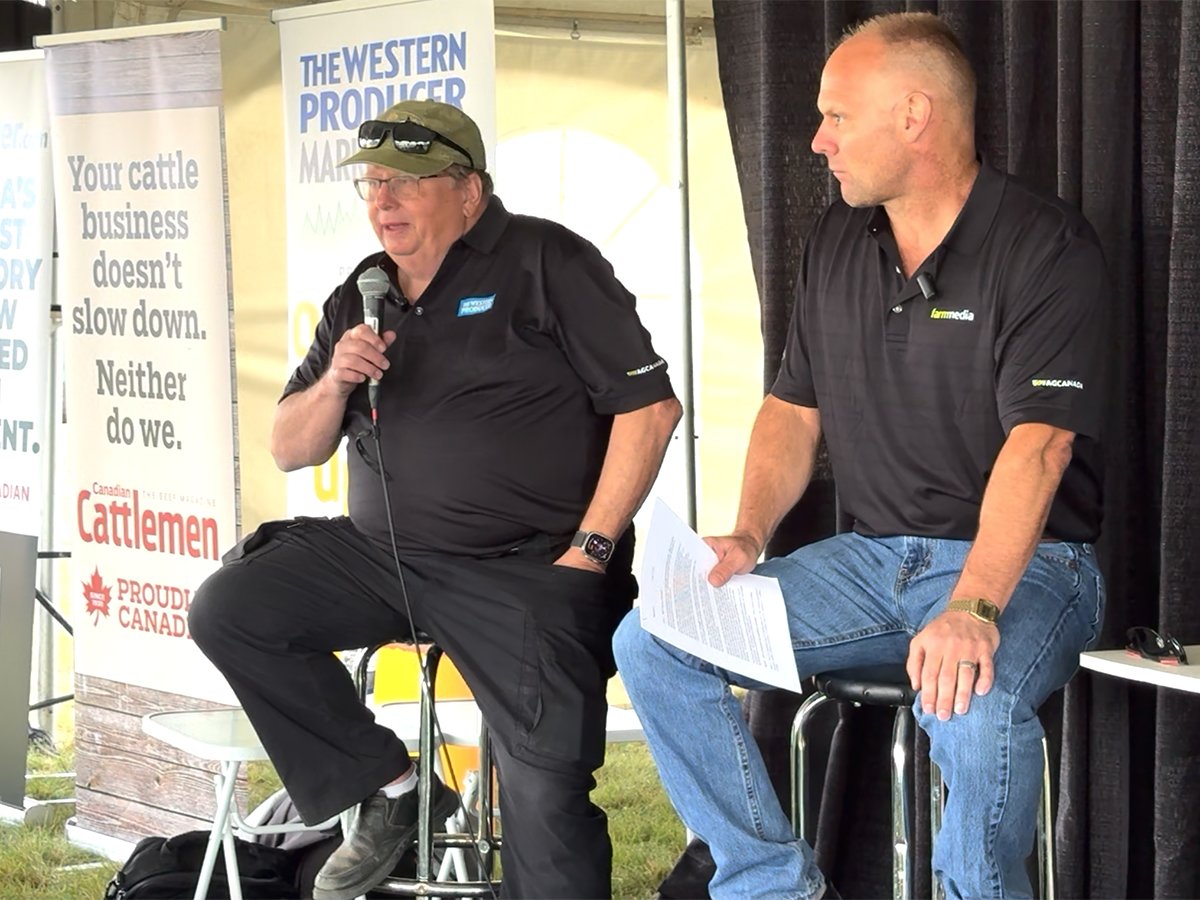SASKATOON – People living outside of Saskatchewan’s urban centres live in an internet “Off Net Area.”
That has many rural and farm internet users ticked off.
As the sole internet provider to rural users, SaskTel controls price and access. Rural users pay as much as six times more than urban people for the same services.
The subscription rate for the two users is identical at $19.95, but that is where the similarities end. Urban subscribers get 20 hours of access a month for the basic rate, while subscribers in the country get three hours of access for the same price. Urban internet surfers who exceed their 20 on-line hours can buy more time for as low as $1 per hour. Rural users are charged from $3 to $6 per hour more.
Read Also

VIDEO: Prairie crops on track for average yields
LANGHAM, SASK. – Western Canadian farmers will harvest an average crop this year provided cooler temperatures prevail and the region…
For those to whom long distance charges apply, the costs seem too high, said Saltcoats, Sask., Liberal MLA Bob Bjornerud. Bjornerud feels SaskTel, as a crown corporation with a telephone monopoly, should provide the rural service at the same rates as urban service.
Difference in cost
“A small business located in rural Saskatchewan that used the internet 40 hours per month would spend approximately $241.95 while in the city it would cost a competing business only $79.95. It makes it pretty hard to compete for rural folks,” he said.
A SaskTel official said the company is not subsidizing internet service and that it costs more to provide service in rural areas.
“We have to ensure that the cost of service is recovered. Calls to major centres for Off Net subscribers are long distance. That is why there is a substantial difference in cost,” said Darcy MacFarland of SaskTel.
“Our competitors wouldn’t think it was fair if we subsidized rural service,” she said, declining to speculate on why there are no rural competitors for SaskTel.
But a SaskTel competitor in urban areas said his company hasn’t ventured into the rural market because SaskTel holds a long distance monopoly.
“We would have to pay them long distance fees that are higher than the highest prime time internet rate SaskTel is charging rural customers…. As long as they have the monopoly on long distance they are able do charge what they like,” said Greg Pultz, internet division manager for Western Business Machines, an urban provider of the service.
Bjornerud is not satisfied with SaskTel’s response to his concerns and has asked the provincial minister in charge of the corporation to reexamine the policy.
“The internet is going to be very important to rural life in this province and by making it unaffordable we will be hurting the rural economy and education of our children,” he said.
Darryl Postnikoff, vice-principal of the Weyburn, Sask., junior high school, agrees. Having recently moved to the larger community from the very small Richmound, in southwestern Saskatchewan, where the school had to place strict limits on internet use because of high hourly rates, the teacher says rural schools “just can’t afford it at the rates SaskTel is charging.”
“I was shocked at the much lower prices we pay in Weyburn…. Who really suffers are the children in rural areas … SaskTel is doing them a great disservice,” Postnikoff said.
Long distance competition is set to start in Saskatchewan in February.
















